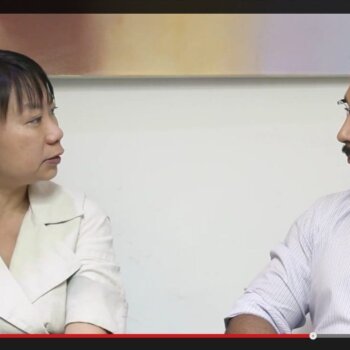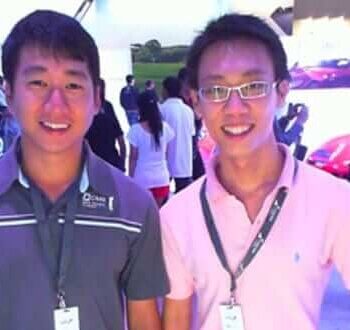(Women on Top in Tech is a series about Women Founders, CEOs, and Leaders in technology. It aims to amplify and bring to the fore diversity in leadership in technology.)
Laura Janusek is the Vice President of Product and founding team member of Modern Teacher, a company that partners with U.S. K12 school districts. Modern Teacher leverages technology to support the transition to personalized learning at scale.
What makes you do what you do?
At a basic level, technology can make people’s lives more convenient. At its best, it can make people’s lives better. That’s why I’m involved in EdTech – I believe technology has the potential to improve the education experience for students from all backgrounds, and in doing so, impact the trajectory of their careers and lives. It’s an equity issue. Tech alone can’t solve all the problems of the education system, but it can level the playing field in some ways, giving students access to resources and tools they otherwise wouldn’t experience.
How did you rise in the industry you are in?
I joined the founding team of an EdTech company and have grown from there. Originally, I was a high school English teacher and was interested in the education technology space. I met a like-minded entrepreneur and joined the founding team of what was then called digedu, The Digital Education Company, which has since grown into Modern Teacher.
As a former teacher, it made sense for me to manage the relationships with the company’s early clients – other teachers and administrators. With direct feedback from these clients, I began to shift focus to the development of our product. At first, the product allowed teachers to design and deliver digital lessons, and allowed students to interact with their teachers and classmates around this content. Over time, the technology evolved to support teachers directly with interactive professional learning content and tools. Now, ModernTeacher.com also houses the Digital Convergence Framework, a nationally recognized framework to guide school district leadership through a strategic pathway to organize their digital ecosystems and personalize learning at scale.
Since the beginning, I worked closely with the users of Modern Teacher’s products, from students to teachers to superintendents. I used their feedback and the company vision to define features, organize the roadmap, break work down for the tech team, and manage the ongoing advancement of our offerings. The evolution of my role occurred naturally with the growth of the company. Along the way, I’ve built a reputation for doing great work, which continues to open doors for me professionally.
Why did you take on this role/start this startup especially since this is perhaps a stretch or challenge for you (or viewed as one since you are not the usual leadership demographics)?
That’s the beauty of EdTech. Tech may be a space that is traditionally dominated by men, but on the other hand, education is a space traditionally dominated by women. In EdTech, there’s a special balance, so my experiences may not be the norm for women in other technical industries. That said, yes, there are times when I still find myself as the only woman in the room. But by sometimes being the only teacher in the room, my colleagues have come to appreciate my unique perspective, which reinforces the value of diverse perspectives on a range of levels. Despite sometimes being the minority, I’m lucky to be part of a team that has always made me feel safe and supported enough to follow my passions and voice my opinions.
Do you have a mentor that you look up to in your industries or did you look for one or how did that work? How did you make a match if you did, and how did you end up being mentored by him/her?
I find all women in tech inspiring, but I wouldn’t say I have one particular mentor. When faced with challenges, I’ve tended to reach out to my network rather than up to a role model. I’ve found that my siblings, friends, and colleagues have always had meaningful experiences to draw on and advice or support to offer.
It may be worth noting that this type of collaborative support works for a lot of women! The traditional expectation that a young professional needs a single, older and wiser mentor is very hierarchical. This is a paradigm that has worked well for some men, but women should not feel pressured to subscribe to this model if it does not provide the right support for them.
Now as a leader how do you spot, develop, keep, grow and support your talent?
One important aspect that has allowed me to develop my team is that we are remote. Removing geographic barriers really opens up the tech talent pool, and it can also increase productivity and engagement. I’ve been speaking on the topic at the Women in Tech Summits this year. Working remotely requires purposeful planning and execution around how to communicate, collaborate, and build relationships, but it also allows for a lot of flexibility and autonomy, which can create a very effective team.
Do you consciously or unconsciously support diversity and why?
Certainly, but we’ve never hired with a particular demographic in mind. In growing our team, we’ve always looked for the right fit in terms of talent and culture. With regard to gender diversity, the Modern Teacher team has naturally grown pretty evenly with this attitude. When considering the bigger picture of our mission, I hope the work we do as a company brings technology exposure and access to a wide range of students, supporting the next generation of diverse women in tech.
What is your take on what it takes to be a great leader in your industry and as a general rule of thumb?
Listening. Of course being a leader can require assertiveness, even aggressiveness, and comfort with decision making, but I’ve found that listening is perhaps the most critical skill. Listen to your clients, and make sure their feedback is influencing decision making. Listen to your team, and make sure each voice is heard. If you’ve been doing your job, you’ve been hiring good people with good ideas. Being an effective leader doesn’t mean standing in front of them and preaching. It means standing with them, hearing them, empowering them.
Advice for others?
Try to stay balanced. Careers in tech, as in many other fields, can be demanding. It’s important to take time to step away, be with family, travel, explore passion projects and hobbies. In the end, time for self-care and balance will help you gain perspective, avoid burnout, and create your best possible work.
If you’d like to get in touch with Laura Janusek, please feel free to reach out to her on [email protected]





























